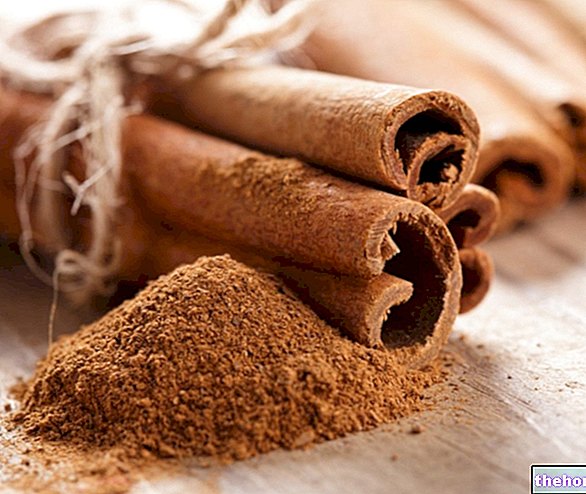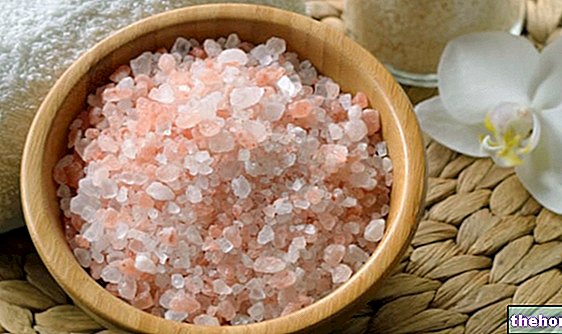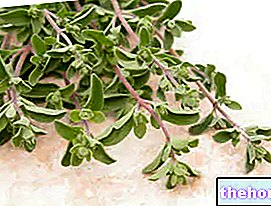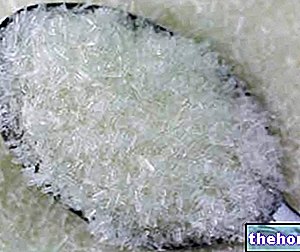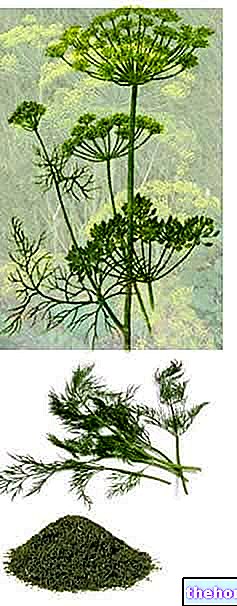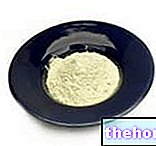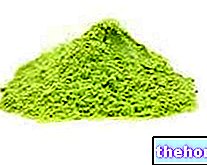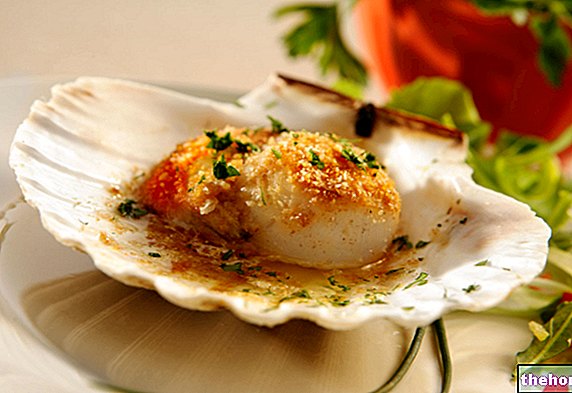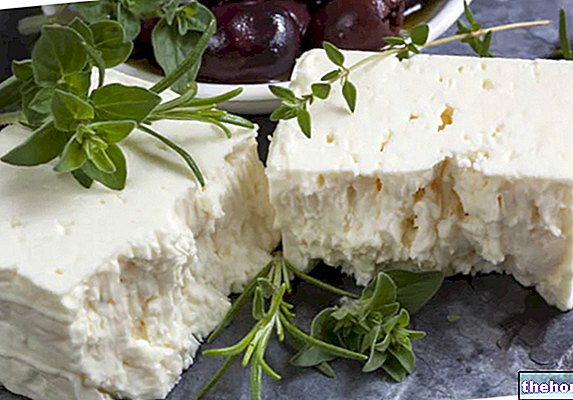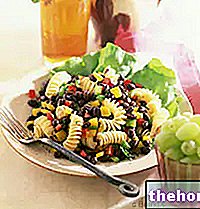What is nutmeg
Nutmeg is one of the best known and most appreciated spices, since its characteristic hot-acrid flavor goes perfectly with dishes based on milk and cheese, puree, game, sauces, broths, vegetables (especially spinach, asparagus and mushrooms ) and pasta.
Botanical notes
Nutmeg is given from the seeds of Myristica fragrans, an evergreen tree native to the Moluccas, now widely cultivated in Indonesia itself, in the Antilles, in Malaysia, in the island of Grenada and in various tropical regions. The fruits of this tree have a shape similar to apricots and contain a seed that - due to its musk-like aroma - it was called and still is known as nutmeg.
On the market it is possible to find both the whole seeds, to be grated at the moment of use so as not to disperse the aroma, and the powder, which is less precious also from an organoleptic point of view. The integument that wraps the seeds is removed and constitutes the mace, a spice with similar gastronomic uses.

Health Risks
At high doses, higher than 2-8 grams (in relation to individual sensitivity, body size and age), nutmeg causes fever, nausea, vomiting, considerable nervous excitement, up to severe psychic disturbances.
In fact, this spice has an "inhibitory activity on monoamine oxidase (enzymes involved in the degradation of excitatory neurotransmitters such as serotonin) and prostaglandins (mediators of the inflammatory response).
The hallucinogenic effects are traced back to the presence of two active compounds: myristicin and elemicin, whose chemical structures are very similar to those of synthetic amphetamines, even if the effects are more closely similar to those of LSD.
Particular caution in the use of nutmeg during pregnancy (granted in small doses) and in individuals receiving psychotropic drugs (such as Mono-Amino-Oxidase Inhibitors).
Healing properties
Due to the numerous side effects that occur at high dosages, nutmeg does not find much space in modern herbal medicine.
According to popular medicine, however, the spice - due to its stimulating, astringent, sedative and carminative properties - is useful as a stimulant of appetite, including sexual appetite, and as a tonic against fatigue and physical asthenia. It also describes antiseptic properties - useful against intestinal infections and some forms of diarrhea - while the carminative action of nutmeg would make it useful for air accumulated in the stomach and intestines.
To learn more, read: Nutmeg in Herbalist "
Other Foods - Spices Garlic Dill Cinnamon Cren Curry Daikon Broth Cube Tarragon Monosodium Glutamate Mace Nutmeg Oregano Paprika Black Pepper Green Pepper Pepper Cayenne Pepper Chilli Pepper Parsley Horseradish Rosemary Dietary Salt Whole Salt Iodized Salt Hyposodic Salt Salt Pink Himalayan Salt Mustard Tabasco Vanilla Wasabi Ginger OTHER ITEMS SPICES Categories Food Alcoholics Meat Cereals and derivatives Sweeteners Sweets Offal Fruit Dried fruit Milk and derivatives Legumes Oils and fats Fish and fishery products Salami Spices Vegetables Health recipes Appetizers Bread, Pizza and Brioche First courses Second courses Vegetables and Salads Sweets and Desserts Ice creams and sorbets Syrups, liqueurs and grappas Basic Preparations ---- In the Kitchen with Leftovers Carnival Recipes Christmas Recipes Dietary Recipes Light Recipes Woman's Day, Mother's Day, Dad's Day Functional Recipes International Recipes Easter Recipes Recipes for Celiacs Recipes for Diabetics Recipes for the Holidays Recipes for Valentine's Day Vegetarian Recipes Protein Recipes Regional Recipes Vegan Recipes

